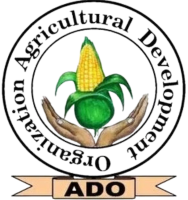Humanitarian Emergency Response
Somalia is one of the most longstanding emergencies in the world. Conflict, insecurity, drought, floods and famine have defined Somalia for more than two decades now
These humanitarian emergencies arise when such events affect vulnerable populations who are unable to withstand the negative consequences by themselves. “Vulnerability” refers to a reduced capacity of individuals or groups to resist and recover from life-threatening hazards, and is most often connected to poverty
ADO intervened to help protect the rights of those affected. This is done by directly assisting communities with their needs and enhancing humanitarian access to civilian populations.
When people are subject to violence and coercion, ADO play responsive, remedial and environment-building roles to help protect civilians.
This crisis is an example of what happens when early warning signs are ignored and ongoing emergencies remain unresolved. For many in this region, the latest droughts are just one of several issues that, taken together, have decimated crops, livestock, incomes, and food security. For decades, Somalia has faced a cycle of crisis that touches on violence, displacement, hunger, and climate change.
Cash transfers and Voucher Assistance
For the last two decades, ADO has been an active partner with Somali Humanitarian Fund-SHF. ADO has reached more than 75,345 households through different assistance modalities such as cash transfers (conditional and unconditional) and in-kind support.
ADO implements cash transfer programs either conditional and unconditional and in-kind supports (food and non-food distribution) to reduce the level of humanitarian crisis and impacts of disaster on vulnerable people.
ADO collaborates with Cash Working Groups (CWG) as they are responsible for the coordination of cash-based responses and setting up cash standards. ADO’s approach focuses on the most drought and disaster-affected communities by increasing people’s ability to purchase lifesaving essential items as a means to reduce the vulnerability, through cash distributions to enable beneficiaries to control purchases and cover their basic needs such as food, water, medicines, etc. which promote their resilience to climate shocks and climate variability.
Somalia is experiencing a historic drought following five consecutive failed rainy seasons that have led to mass displacement, widespread death of livestock, and a devastating food crisis. The drought is projected to intensify as Somalia faces the risk of a sixth consecutive failed rainy season
Droughts cause herders to sell more of their livestock than they would under normal conditions, resulting in plummeting livestock prices and deteriorating rural incomes. Drought-affected stock can ingest large quantities of sand and dirt which may cause impaction of the gut. Hungry stock eat excessive amounts of indigestible roughage or grain. Many communities’ livestock begins to perish day by day impacting food security.
To build the adaptive capacity of the community, along with cash transfer interventions, ADO introduces livelihood and recovery responses like rehabilitation of water points, distribution of agricultural inputs, livestock restocking, fodder provision, training community animal health workers, construction of latrines, distribution of hygiene kits, natural resource management practicing like soil and water conservation bunds as cash for work.

